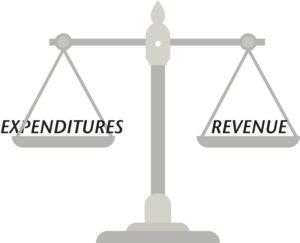By: Nicole Jorwic, Chris’ Sister, Director of Rights Policy, The Arc of the United States
 My home state of Illinois still has seven state-run institutions for people with intellectual and developmental disabilities (I/DD) open. In 2018, 37 states still have institutions where people with I/DD live institutional lives away from their families and communities. Some may recall the horrible investigative reports that showed the terrible conditions in institutions, but fail to realize that they still exist — and that state and federal government dollars are still funding them. The Arc of the United States was founded by families like mine trying to eliminate the need for those institutions, and to get their family members with disabilities back home and included in their communities. While we have come a long way, there is still much to do from state capitals to DC.
My home state of Illinois still has seven state-run institutions for people with intellectual and developmental disabilities (I/DD) open. In 2018, 37 states still have institutions where people with I/DD live institutional lives away from their families and communities. Some may recall the horrible investigative reports that showed the terrible conditions in institutions, but fail to realize that they still exist — and that state and federal government dollars are still funding them. The Arc of the United States was founded by families like mine trying to eliminate the need for those institutions, and to get their family members with disabilities back home and included in their communities. While we have come a long way, there is still much to do from state capitals to DC.
The families that started The Arc movement were the examples that my parents emulated when they fought to ensure that my brother Chris, who had been diagnosed with autism, was the first student with the diagnosis included in our school district in the early 90’s. The self-advocates — the beating heart of The Arc — are the ones who my brother is following in the footsteps of when he advocates in our state capital for better wages for Direct Support Professionals, or presents at local school districts about how to better support students with autism. The policy staff of The Arc of the United States, who I am honored to call colleagues, have been fighting this fight for decades — some since before my brother was even born.
The legacy of The Arc of the United States was just one part of the reason I was glad to join the team as Director of Rights Policy almost three years ago. But more than that, it was about being a part of a movement that was bigger than any one person, family, or diagnosis. Since January of 2017, I have truly seen the power of that movement. This past year has been a whirlwind. I stood in awe at every rally, event, presentation, hearing and protest, at those who were willing to put their bodies on the line — screaming, shouting, and sharing their most personal stories about why Medicaid matters in their lives and the lives of their loved ones. With my brother’s permission to share his story, I was sometimes part of that large chorus that ultimately was able to stave off the attacks last fall and SAVE MEDICAID… for now.
The “for now” part is what keeps me up at night. As a family member and advocate, it is also why it is more important than ever that we grow the movement to ensure that the general public understands why inclusion and acceptance matters, and that they join the fight to ensure the progress that we have made in the disability community is not stalled by conversations of “cost savings” and “reductions.” We have to talk about the fact that institutions remain open, and how those dollars would be better spent in the community. We have to educate the general public about what Medicaid is and does. On the policy level, we have to talk to state and federal legislators about the fact that the Federal Medicaid law which we fought so hard to save needs a face lift. Right now, services in institutions, nursing homes, and other more segregated settings are mandatory — while home and community-based services (HCBS) are optional under the law. So, all those billions of dollars of cuts would have cut those community services — while those seven institutions in my home state of Illinois would have stayed open.
These are complex issues, but the basic fact remains that everybody benefits from people with disabilities being part of the fabric of their communities. That doesn’t come by keeping people locked away in institutions, or segregated into different classrooms. It comes through conversation, inclusion, and acceptance that we are all better together.
Since it is also Autism Acceptance month, I also want to talk about my brother Chris and why inclusion and acceptance matters in our lives. You see, it is my brother’s voice that I hear during every tense Capitol Hill meeting, frustrating debate, and late night in the office. This is a little ironic since my brother doesn’t use his voice to speak. Chris types to communicate, and this really only started when he was 21 years old — almost 20 years after he lost his speaking voice. At the time when he started sharing the “20 years of observations and opinions,” my grandpa asked him how he had learned to read and write. And Chris answered with his signature sarcasm, that he “learned to read in his classroom like everyone else”. That is why inclusion matters, that is why acceptance goes light-years beyond awareness. If my parents — like all the parents who started The Arc — hadn’t insisted that Chris be included with his peers, who knows if he would have ever found his ability to communicate. That would have been a loss to our family, our community, and the world.
Chris always says it better than I can. Here is something he wrote: “Every voice matters and deserves to be heard. I would like to say that autism is not a tragedy or a disaster, it is a challenge and I am lucky to have a family that is up to it. I would be happy to talk to political leaders about how they spend our money and why they should talk to leaders like me, who have the experience and history to understand where the money and resources should go and what awareness and acceptance really looks like. And to my brothers and sisters in autism, who have families who see only your diagnosis, I fight for you.”
Chris and I are fighting, and we hope you join our movement today, so that we can continue the fight that started The Arc of the United States over 65 years ago — the fight for acceptance and inclusion in all areas of life for people with disabilities.


 My home state of Illinois still has seven state-run institutions for people with intellectual and developmental disabilities (I/DD) open. In 2018, 37 states still have institutions where people with I/DD live institutional lives away from their families and communities. Some may recall the horrible investigative reports that showed the terrible conditions in institutions, but fail to realize that they still exist — and that state and federal government dollars are still funding them. The Arc of the United States was founded by families like mine trying to eliminate the need for those institutions, and to get their family members with disabilities back home and included in their communities. While we have come a long way, there is still much to do from state capitals to DC.
My home state of Illinois still has seven state-run institutions for people with intellectual and developmental disabilities (I/DD) open. In 2018, 37 states still have institutions where people with I/DD live institutional lives away from their families and communities. Some may recall the horrible investigative reports that showed the terrible conditions in institutions, but fail to realize that they still exist — and that state and federal government dollars are still funding them. The Arc of the United States was founded by families like mine trying to eliminate the need for those institutions, and to get their family members with disabilities back home and included in their communities. While we have come a long way, there is still much to do from state capitals to DC. A balanced budget amendment is a proposed federal constitutional rule requiring that the government not spend more than its income in a given year. Most state constitutions have balanced-budget provisions and most of these make an exception for times of war or national emergency, or allow the legislature to suspend the rule by a supermajority vote. The U.S. Constitution does not require a balanced budget. Some members of Congress are looking to change that by passing legislation to add an amendment to the U.S. Constitution.
A balanced budget amendment is a proposed federal constitutional rule requiring that the government not spend more than its income in a given year. Most state constitutions have balanced-budget provisions and most of these make an exception for times of war or national emergency, or allow the legislature to suspend the rule by a supermajority vote. The U.S. Constitution does not require a balanced budget. Some members of Congress are looking to change that by passing legislation to add an amendment to the U.S. Constitution. The House and Senate bills reduce federal revenue by about $1.5 trillion over 10 years. Members of Congress have acknowledged that passing these tax cuts will make it easier to justify spending cuts down the road. The Congressional Budget Office (CBO) also notes that automatic spending cuts may be triggered if Congress does not act to prevent them. These automatic cuts could mean a $25 billion dollar cut to Medicare in 2018. Automatic spending cuts could also slash funds that go to states to operate critical programs such as the Vocational Rehabilitation state grant program and the Social Services Block Grant.
The House and Senate bills reduce federal revenue by about $1.5 trillion over 10 years. Members of Congress have acknowledged that passing these tax cuts will make it easier to justify spending cuts down the road. The Congressional Budget Office (CBO) also notes that automatic spending cuts may be triggered if Congress does not act to prevent them. These automatic cuts could mean a $25 billion dollar cut to Medicare in 2018. Automatic spending cuts could also slash funds that go to states to operate critical programs such as the Vocational Rehabilitation state grant program and the Social Services Block Grant. This year’s Congressional budget process is particularly important for people with disabilities and their families. The recently-passed House and Senate fiscal year 2018 budgets set overall spending and revenue targets for the next 10 years. But beyond this basic function, Congressional budget writers have been clear that an underlying goal of the 2018 budget is to set the stage for a massive tax cut bill. The Arc is concerned that significant loss of federal revenue will result in cuts to programs for people with disabilities
This year’s Congressional budget process is particularly important for people with disabilities and their families. The recently-passed House and Senate fiscal year 2018 budgets set overall spending and revenue targets for the next 10 years. But beyond this basic function, Congressional budget writers have been clear that an underlying goal of the 2018 budget is to set the stage for a massive tax cut bill. The Arc is concerned that significant loss of federal revenue will result in cuts to programs for people with disabilities






